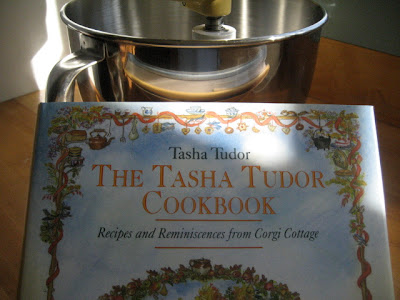

The two books I have read by
Barbara Pym, Excellent Women and now, Jane and Prudence are not as I expected - straightforward, serious stories; rather they are really quite humorous. Jane reminds me of the "Lady" in
E.M. Delafield's Provincial Lady series. They both have a wry way of looking at life and quite often make me laugh.
Jane is described by her 18-year old daughter, Flora, as "vague" which is perfect. She lives in a bit of a dream world and very often has quite inappropriate responses to various situations. Quotes pop out of her memory and her mouth that have no connection with the actual conversation. She has a funny, almost wild, sense of humor that I just adore. There's a quality of the old screwball comedies and sometimes I could hear Katharine Hepburn in Bringing Up Baby, as she goes on and on talking nonsense that is clear and correct only to her.
I feel that a crowd of our new parishioners ought to be coming up the drive to welcome us, said Jane, looking out of the window over the laurel bushes, but the road is quite empty.
That only happens in the works of your favourite novelist, said her husband indulgently, for his wife was a great novel reader, perhaps too much so for a vicar's wife.I do hope my daughter has been entertaining you, said Jane easily. I was suddenly called away, she added, thinking as she said it that this was the kind of thing some clergy wrote in parish magazines when people had died. Called away or called home, they said.A piano tuner is in the other room, doing his job, when she spots his "bowler" hat.
She seized his hat and placing it on her head, pirouetted round the hall singing.Someone comes to the door, and after a few words exchanged between them, Jane ponders:
He thinks he has come to a private mental home. The patients are not dangerous, but are allowed to take walks in the grounds.A neighbor speaking of another woman says that one can learn a lot about men through their wives, and we see Jane's response:
Oh, dear... Jane considered herself ruefully. Yes, I suppose one can.These sorts of things happen constantly. When the reader thinks the book is proceeding in a logical manner, Jane thinks or says something that makes us stop and laugh.
Jane is a settled matron of 41, and Prudence a "spinster" of 29. They became acquainted at college when Jane tutored the younger woman. Their lives are very different, and they don't always understand one another, but there is a great friendship. Prudence seems much older in some ways. She is "experienced" in love, and is oh, so serious. Jane is quite the opposite; married to a vicar, naive about the ways of the world, and very funny. In their own separate ways, they are quite content in being who they are. There are men in their lives, but each woman has a sense of self which is not dependent upon those men.
As the Talking Heads sing, "Heaven is a place, where nothing ever happens." This book is heavenly, and nothing very much happens. There are ineffectual men, and "excellent" church women. They live their lives from day to day. Along with the humor, there are some beautifully written descriptions such as:
I love Evensong. There's something sad and essentially English about it, especially in the country, and so many of the old people are there. I always like that poem with the lines about gloved the hands that hold the hymnbook that this morning milked the cow.... a novel of the kind that Prudence enjoyed, well written and tortuous, with a good dash of culture and the inevitable unhappy or indefinite ending, which was so like life.His own home was one of several standing round the little green with its chestnut trees and pond which formed the real centre of the village.I expect that the many passages I've quoted say more about me than about the book. I love these characters and I love how Barbara Pym writes. She is intelligent and funny and kind, three of my favorite qualities. Her characters don't always end up in the lives they planned for themselves, but they don't complain. They have a moment or two of regret, but then go on in their mostly happy ways. I find them inspirational.





 If it were up to me, I would give the whole team the Most Valuable Player award.
If it were up to me, I would give the whole team the Most Valuable Player award.
 Here is another recipe from my beloved cookbook with the long name -
Here is another recipe from my beloved cookbook with the long name -
 Moat Mountain, 1893 (in Jackson, New Hampshire) painted by Frank Henry Shapleigh
Moat Mountain, 1893 (in Jackson, New Hampshire) painted by Frank Henry Shapleigh Let me live in a house by the side of the road
Let me live in a house by the side of the road On this 149th anniversary of his birth, I offer a quote from a letter TR wrote to his son, Ted, when the boy was in college.
On this 149th anniversary of his birth, I offer a quote from a letter TR wrote to his son, Ted, when the boy was in college.


 After: can you almost taste it?
After: can you almost taste it?




















 October
October
 If you've been coming by to read my letters for a while, you know that I am a huge Stacey Kent fan. I own all her albums, and play them often. Well, I am happy, happy, happy to report that she has a new one. She has gone in a new direction and is on a new label, the famous jazz label, Blue Note. She has been, to my mind, the queen of interpreting all the old standards, and on this one, she does new songs that may become standards someday. There are a few old songs on this cd; one which Louis Armstrong did so well, What A Wonderful World.
If you've been coming by to read my letters for a while, you know that I am a huge Stacey Kent fan. I own all her albums, and play them often. Well, I am happy, happy, happy to report that she has a new one. She has gone in a new direction and is on a new label, the famous jazz label, Blue Note. She has been, to my mind, the queen of interpreting all the old standards, and on this one, she does new songs that may become standards someday. There are a few old songs on this cd; one which Louis Armstrong did so well, What A Wonderful World. 
 I went over to another town today to the co-op health food store, and a beautiful library. Note the shallots to make Tara's mashed potatoes!
I went over to another town today to the co-op health food store, and a beautiful library. Note the shallots to make Tara's mashed potatoes!